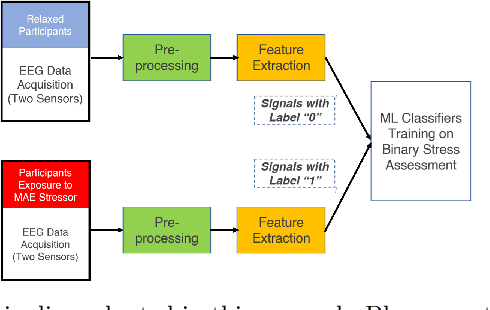Stress Management Using Virtual Reality-Based Attention Training
Paper and Code
Dec 10, 2023



In this research, we are concerned with the applicability of virtual reality-based attention training as a tool for stress management. Mental stress is a worldwide challenge that is still far from being fully managed. This has maintained a remarkable research attention on developing and validating tools for detecting and managing stress. Technology-based tools have been at the heart of these endeavors, including virtual reality (VR) technology. Nevertheless, the potential of VR lies, to a large part, in the nature of the content being consumed through such technology. In this study, we investigate the impact of a special type of content, namely, attention training, on the feasibility of using VR for stress management. On a group of fourteen undergraduate engineering students, we conducted a study in which the participants got exposed twice to a stress inducer while their EEG signals were being recorded. The first iteration involved VR-based attention training before starting the stress task while the second time did not. Using multiple features and various machine learning models, we show that VR-based attention training has consistently resulted in reducing the number of recognized stress instances in the recorded EEG signals. This research gives preliminary insights on adopting VR-based attention training for managing stress, and future studies are required to replicate the results in larger samples.
 Add to Chrome
Add to Chrome Add to Firefox
Add to Firefox Add to Edge
Add to Edge